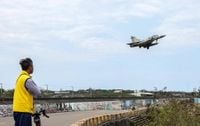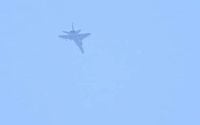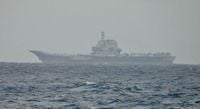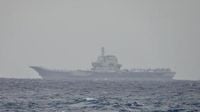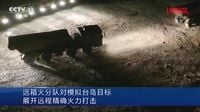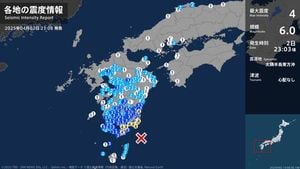The geopolitical tension surrounding Taiwan has escalated significantly in recent days, as China intensifies military maneuvers in the region. In a show of force, the Chinese military has simulated attacks against key ports, energy plants, and strategic infrastructure around the island, raising alarms about a potential armed conflict. According to Taiwanese authorities, 76 military aircraft and 15 warships from China have been detected near Taiwan's territorial waters, marking an unprecedented escalation that has prompted maximum alert levels in the region.
On April 2, 2025, the Chinese army announced the deployment of its aircraft carrier Shandong in exercises aimed at testing the ability to 'block' the autonomous island. These exercises involved 'ship-to-air coordination, conquest of area air superiority, and attack on land and sea targets', according to the Eastern Theater Command of the Chinese military. The drills, dubbed 'Thunder in the Strait 2025A', have drawn sharp criticism from Washington, which labeled them as 'aggressive and irresponsible'. The Pentagon emphasized that these maneuvers pose a risk to the security of the entire Indo-Pacific region.
The Pentagon's response underscores the seriousness of the situation. "Any attempt to alter the status quo by force will not be tolerated," stated a White House official, reaffirming the United States' commitment to Taiwan's defense. The situation is particularly sensitive as Taiwan approaches its presidential elections, with concerns that a victory for pro-independence candidates could jeopardize the prospects for peaceful reunification.
China has justified its military exercises as necessary for defending its territorial integrity, viewing Taiwan as a rebellious province destined for 'reunification'. The timing of these simulations coincides with Taiwan's upcoming elections, which the Chinese leadership fears could solidify the island's independence movement. Zhu Fenglian, a spokesperson for the Taiwan Affairs Office, warned that efforts to secure Taiwan's independence would lead to war, stating, "Independence means war, and promoting independence pushes the people of Taiwan into a dangerous situation of armed conflict."
In response to the heightened military activities, the Taiwanese government has condemned China's maneuvers as a direct threat to democracy and the freedom of its citizens. President Tsai Ing-wen has called for international support, firmly asserting that "Taiwan will not yield to military pressure and will continue to defend its sovereignty." This plea for assistance highlights the international dimension of the crisis, as Taiwan seeks to rally global support against what it perceives as aggressive Chinese actions.
The economic implications of the military escalation are also significant. The Taiwan Strait is a critical juncture for global trade, with approximately 40% of maritime traffic passing through these waters. The ongoing military exercises have already caused delays in shipping and increased insurance premiums for vessels transiting the area. Asian stock markets reacted negatively to the news, with significant declines reported in Tokyo, Seoul, and Hong Kong. Analysts warn that if tensions continue to rise, the repercussions could be devastating for the global economy.
Furthermore, the Pentagon has released a classified memorandum indicating a shift in U.S. military strategy, prioritizing the deterrence of a potential Chinese invasion of Taiwan. This document, leaked to the Washington Post, outlines that China is viewed as the principal threat, with a focus on denying Beijing the opportunity to achieve a fait accompli regarding Taiwan's status. The memo underscores the U.S. commitment to maintaining peace and stability in the Taiwan Strait and opposing any unilateral changes to the status quo.
As military exercises continue, the Chinese forces have conducted long-range live-fire drills and simulated attacks on key Taiwanese infrastructure, including ports and energy facilities. Colonel Shi Yi of the Eastern Theater Command stated that these exercises achieved their intended effects, further escalating tensions in the region. Taiwan has condemned these provocations, asserting that they not only threaten peace in the Taiwan Strait but also undermine regional security.
The international community is closely monitoring the situation, with fears that any miscalculation could lead to a broader conflict. The crisis poses a dilemma for global partners, particularly in Europe, who are torn between upholding international law and maintaining economic ties with China. As the situation unfolds, the stakes continue to rise, with both sides preparing for a potential confrontation.
In conclusion, the current military maneuvers around Taiwan signify a critical juncture in U.S.-China relations and regional stability. As both nations navigate this complex geopolitical landscape, the potential for conflict hangs in the balance, underscoring the urgent need for diplomatic efforts to de-escalate tensions and find a peaceful resolution to the ongoing crisis.
